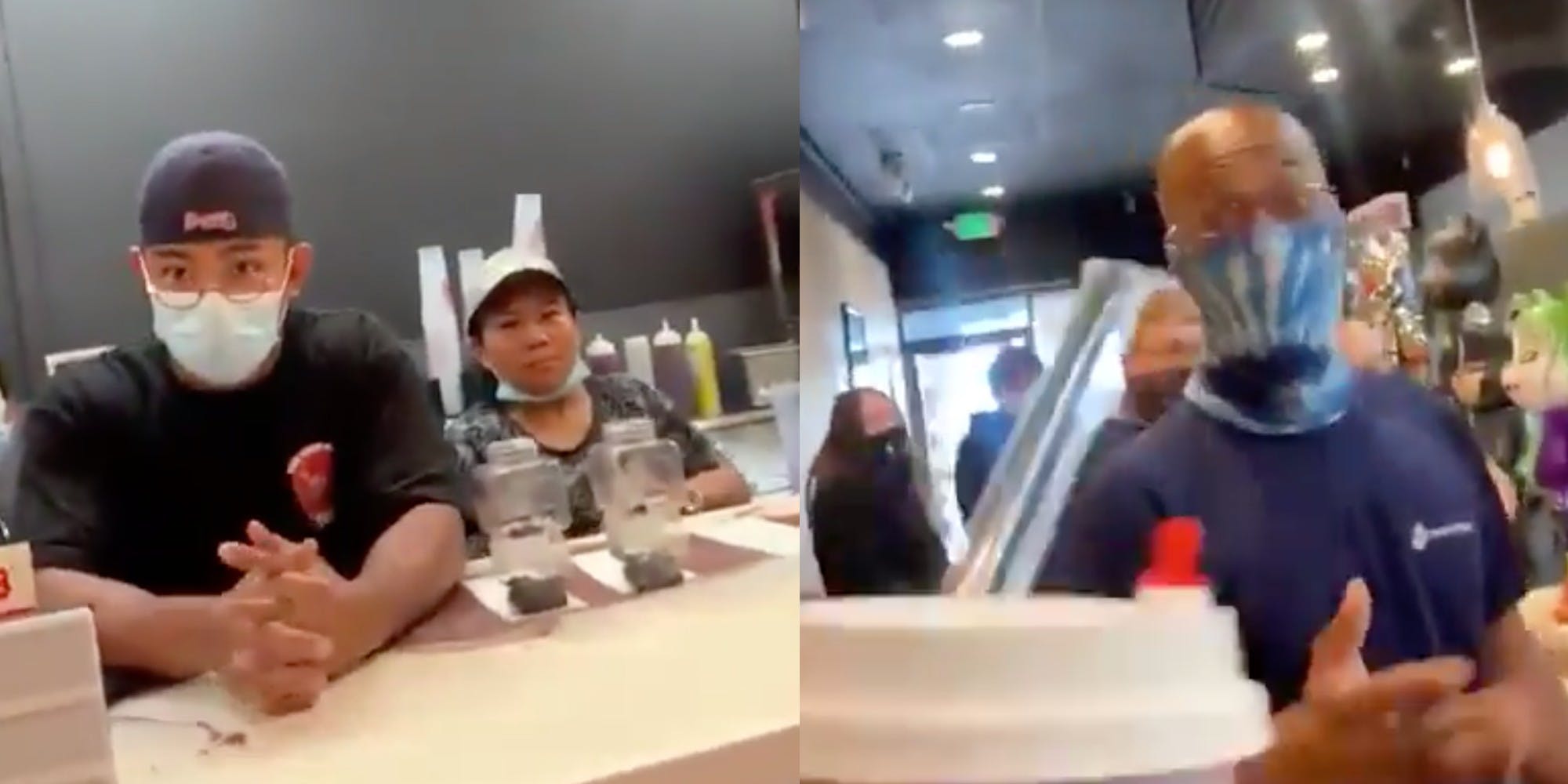Karens
Debate Surrounding The Term ‘Black Karen’ In Viral Cultural Appropriation Incident

Viral Video: ‘black Karen’ Protests Tea Shop Cultural Plunder
A controversial video from three years ago starring Ethiopian lady Alewia Tola Roba has sparked new social media conversations. Roba accuses Aurora, Colorado’s Trap Tea – The Boba Plug of cultural appropriation in the video. Her question concerns the shop’s name and its allocation of Black culture.
Black Karen accuses Indonesian business of “stealing black culture” pic.twitter.com/MXLN830Fqd
— Censored Men (@CensoredMen) August 15, 2023
The confrontation escalates as Roba questions the shop’s staff about its ownership and accuses them of borrowing Black terminology like “trap” and “plug.” Roba’s combative attitude, including insulting remarks against a Black client and cultural appropriation charges, made the video famous.
The Birth Of ‘black Karen’ And Public Reaction
Recent cases of mostly white persons calling police or management on Black people over small things have made the word ‘Karen’ famous. However, using it to describe Alewia Tola Roba, a Black lady, has caused controversy.
Many say ‘Black Karen’ is an oxymoron, like ‘black white person.’ Critics worry that such rhetoric may simplify complex problems and distract from cultural appropriation discussions. Some believe calling Roba a ‘Black Karen’ minimizes her issues and enthusiasm.
Debunking ‘black Karen’—a Misguided Label?
After the video surfaced, online arguments have increased about whether Alewia Tola Roba should be called a ‘Black Karen.’ Critics say the word downplays the cultural appropriation problem and ignores its complexity.
Commentators stress the significance of acknowledging Black diversity and avoiding sweeping classifications. Roba’s enthusiasm and concern are appreciated. However, others advise a more nuanced conversation on cultural appropriation rather than divisive language.
Trap Tea: The Boba Plug became Banned Boba after the event. The debate shows the difficulty of tackling cultural appropriation and the necessity for deliberate conversation that respects the Black community’s viewpoints.
Understanding Trap Tea’s Name Change
After the cultural appropriation incident, Trap Tea – The Boba Plug became Banned Boba. This ruling meets Alewia Tola Roba’s concerns but complicates cultural appropriation discussions.
Business cultural awareness has evolved; therefore, the name has changed. It challenges whether businesses must be culturally conscious and sensitive to community issues. The tea shop’s makeover raises questions about power relations and how corporations balance respect and exploitation of traditional characteristics.
The Effects Of ‘black Karen’
The viral video’s resurrection and talks about ‘Black Karen’ have changed social media dynamics. The viral video sparked discussions on language, representation, and the dangers of racial labeling.
While others claim that ‘Karen’ has been extensively utilized to illustrate entitlement and privilege, its use to represent Alewia Tola Roba adds racial depth. The event has raised questions about how language impacts public opinions and how particular terminology might reinforce prejudices. Social media users are discussing online discourse’s accountability and language’s influence on community relations.
Getting Past Labels For Positive Conversations
The ‘Black Karen’ scandal emphasizes the need for cultural appropriation discussions. Cultural knowledge and understanding may be promoted within and beyond communities instead of contentious labels.
Dialogue across cultures may make society more inclusive and knowledgeable. Recognizing Black diversity and embracing diverse opinions helps refine cultural appropriation discussions. Education and open communication are essential to resolve concerns and bridge understanding, creating an atmosphere where cultural appreciation and history may coexist.
Trap Tea’s Rebranding: Goals And Effect
Trap Tea – The Boba Plug’s rebranding as Banned Boba raises questions about its objectives and effect. The name change addresses cultural appropriation problems and raises doubts about its goals. Businesses facing cultural insensitivity claims must balance corporate identity with cultural tolerance. Trap Tea’s rebranding shows companies’ challenges in handling cultural appropriation in a socially aware world.
Changing Use Of ‘karen’
‘Karen’ now refers to a particular conduct style, frequently coupled with entitlement and privilege. Its expansion to designate Alewia Tola Roba as a ‘Black Karen‘ has raised questions about language’s malleability in social media. Language shapes perceptions and narratives as it evolves. Analyzing the changing use of terminology like ‘Karen’ in the context of racial dynamics highlights the necessity for nuanced talks about language, its influence, and online responsibilities.
Read Also: “Soho Karen”: Legal Battles, Social Impact, And Calls For Change
Black Community Individual Perspectives
The ‘Black Karen’ debate shows the danger of reducing Black experiences. A more inclusive cultural appropriation discussion requires acknowledging individual views. The Alewia Tola Roba tragedy has raised language questions, but we must recognize the complexity of the Black experience. Dispelling preconceptions and increasing cultural sensitivity and respect may be achieved by encouraging a more nuanced knowledge of individual opinions in the community.
From Trap Tea’s Experience
Trap Tea – The Boba Plug’s cultural appropriation incident is a lesson for companies handling cultural sensitivity. Understanding branding consequences is crucial as businesses grow more diverse. Trap Tea’s rebranding shows how customer expectations change and how firms must balance cultural respect and appropriation. This event raises questions about how companies might promote cultural awareness and sensitivity in their communities.
Social Media In Cultural Discourse
The social media-fueled ‘Black Karen’ scandal shows how these platforms shape cultural conversation. Social media raises awareness and divides viewpoints. Analyzing the incident’s relevance on different platforms shows how online venues may reinforce prejudices or spark valuable debates. Exploring strategies to use social media for constructive cultural appropriation conversation may help dismantle misconceptions and promote educated and inclusive public discourse. Platforms and people must encourage cross-label interactions as online spaces expand to foster understanding.












You must be logged in to post a comment Login